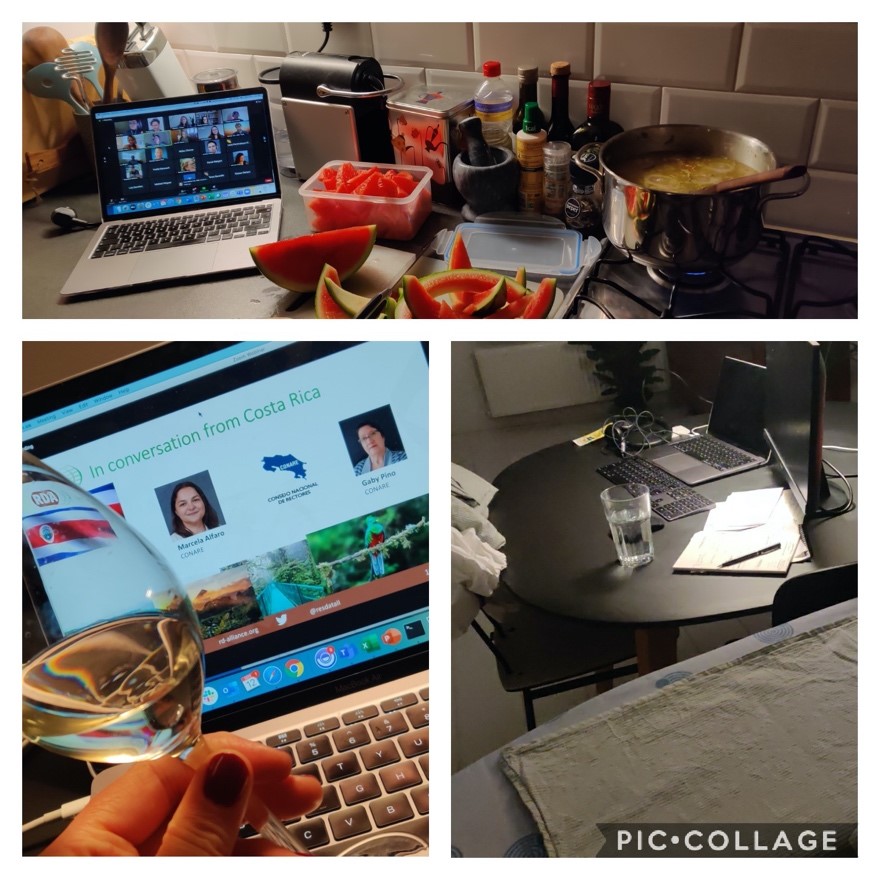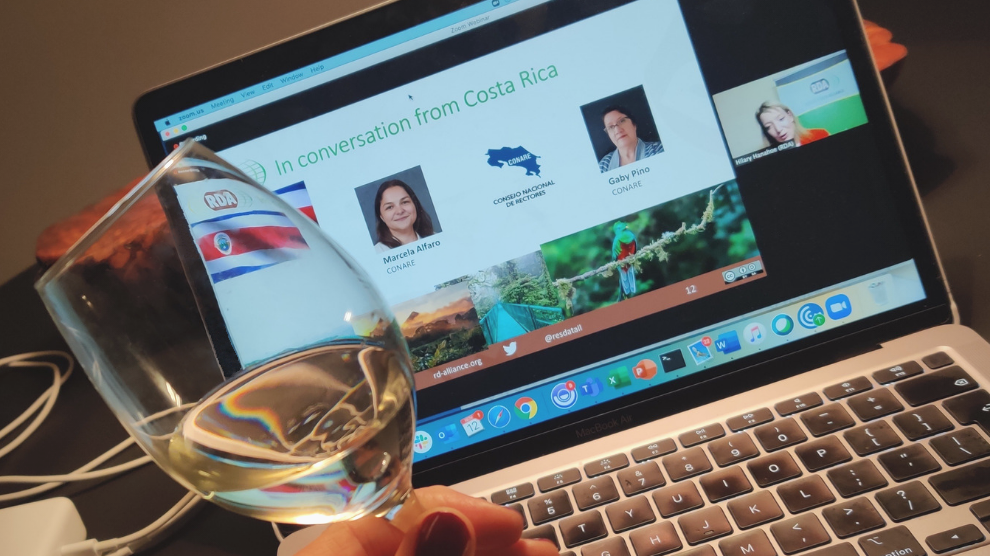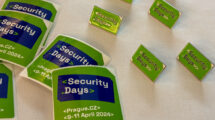My gut reaction to the pandemic was one of woe. Hearing that RDA Melbourne was cancelled brought a tear to my eye, but this was quickly consoled by a few hours on a Tassie1 beach and a rash purchase of a big hunk of myrtle wood which makes a fitting fruit bowl in my new flat.

I was still unconvinced of the benefits for several months until I got into the swing of online events, but I’m now a convert and can’t see myself ever going back to so much travel. It turns out that a well-organised online event offers decent networking opportunities and several other unexpected perks I hadn’t anticipated. Strap in and let me convince you…
There is a levelling effect
You see different people at online events, which for me makes it a much better experience. I love meeting new people and hosting things virtually means that those who usually couldn’t attend because of costs, or childcare, or career stage can get the same opportunities. It’s hard for an employer to justify jetting you around the world to simply attend, but online allows anyone to tune in without having to present a paper. The more diverse audience leads to richer discussions and new perspectives (check out Nancy McGovern’s work on radical collaboration if you’re not convinced).
The content is richer and comes online faster
When everyone is remote, more thought seems to be put into session prep and how to engage the audience. I’ve not experienced the same dominance of discussion that is present in some in-person events. Perhaps this is because tech favours the young, there are multiple modes of engagement (chat, hand raise, collaborative notes) and more use of tools like mentimeter and slido to give everyone a chance to participate – anonymously if desired. Two things I really loved about RDA plenary 16 was the simultaneous translation into Spanish and that session recordings were available shortly afterwards. This made it possible to attend multiple parallels, and not with an inferior experience as everyone was online so everything was fully recorded and accessible.

You can multi-task
I discovered the benefits of cooking while listening to RDA sessions, painting my nails (which usually fails as I can’t sit still long enough), doing the laundry and toasting the closing session with a glass of wine. I fell in love with my new Bluetooth headset which lets me roam around or watch the world go by on the balcony while I listen. These actions actually focus my attention on what’s being said as I’m not web browsing or engaging my brain in social media as a distraction. And they can only happen at home. They would be impossible, or certainly frowned upon if you tried to do them in a conference centre…
You can still see your friends
The social aspects of events are by far the most enjoyable for me. I love the coffee time chats, hanging out for beers or exploring new cities with colleagues. I was very sceptical that this could be replicated but did actually get a sense of place with the Costa Rican quiz at RDA P16 and enjoyed the book club chats. I’m still to read Françoise Genova’s recommendation but know this will be a new bond we have. This is what we generate in such informal get-togethers and it turns out you can do this just as well online.
You are at home!
It is nice to stay in swanky hotels and try out world cuisines, but sometimes you just want your own bed and not to have to venture out to find a restaurant. Home is where the heart is so they say, and it is comforting to switch off the laptop and be back where you want to be instantaneously, not watching the clock as you wait for your train / plane. You can also keep up your regular routines, be they Dutch classes, yoga, body pump (urgh – looking at you Andrew Treloar!) or chilling with friends and family.
Obviously lots can still go wrong with online events. The platform REALLY matters. It has to be accessible, stable and fitting to the way the community works. I’ve still not found a good example that replicates the poster networking sessions at academic conferences and miss the ability to discretely listen into coffee chats to see if I want to join. Runtheworld was a great platform for serendipitous networking and I thoroughly enjoyed the 5 minute speed-data-ing sessions there. I also heard of lots of other great tools I’m yet to try and this is a booming area so think we’re set for even better online events in 2021.
So, having said I’m a convert, I would still travel, but I will be much more selective. My new criteria for in-person meetings are as follows:
What is the travel to event ratio?
If I need to spend more time getting there than actually being there then the answer is likely to be a no. I now value my own free time more highly than your event. Sorry! Not sorry 😉
Who will be there?
If I have the chance to catch up with key people I want to collaborate with there’s a much greater chance I will come in person. Sometimes face time is really needed to brainstorm ideas and truly learn from peers.
Is this my core work and community?
Many of the events I traditionally attended were tangential to my work. Some papers were useful but many made you question why you were there and you’d end up doing email / work which is just rude. If you’re present you should be present. There are one or two core conferences which I would always want to be at and clone myself to attend parallels. For me that’s IDCC, RDA and now TNC. Hope they happen in person again soon and that GÉANT approves my travel requests…
Is this somewhere I actually want to go?
Combining holidays with work events in a huge perk in our field. I’ve been rhino tracking, cruised on the Amazon, and shared a delicious Buddhist temple meal with Korean colleagues on work trips. These events enrich the work discussion and the memories stay with you. More please!
Online events are here to stay and I personally thing that’s a good thing. It’s less damaging to our environment and has a levelling effect which I don’t think can be underplayed. The pandemic is horrific in many respects, but it is also transforming the way we work for the better and I view that as a welcome COVID silver lining.
1 Nickname for the island state of Tasmania







